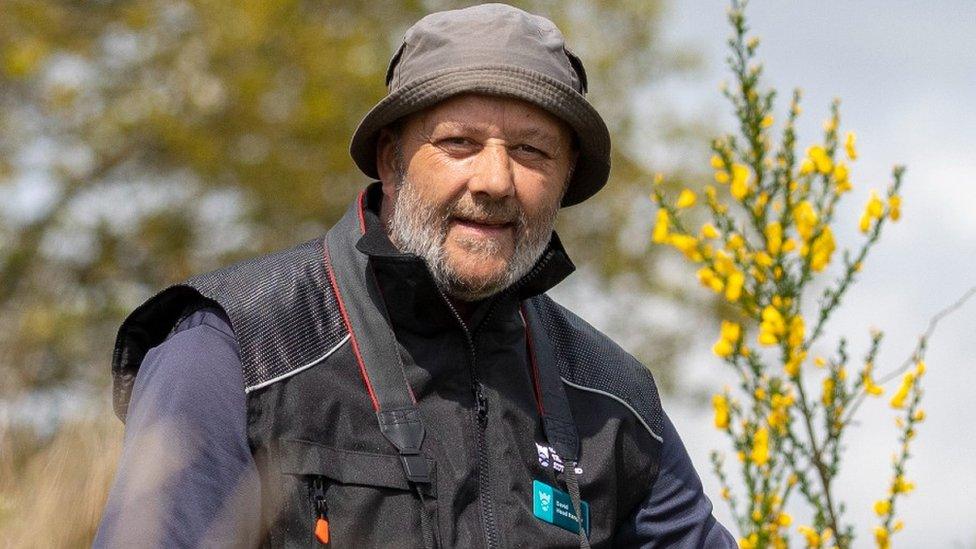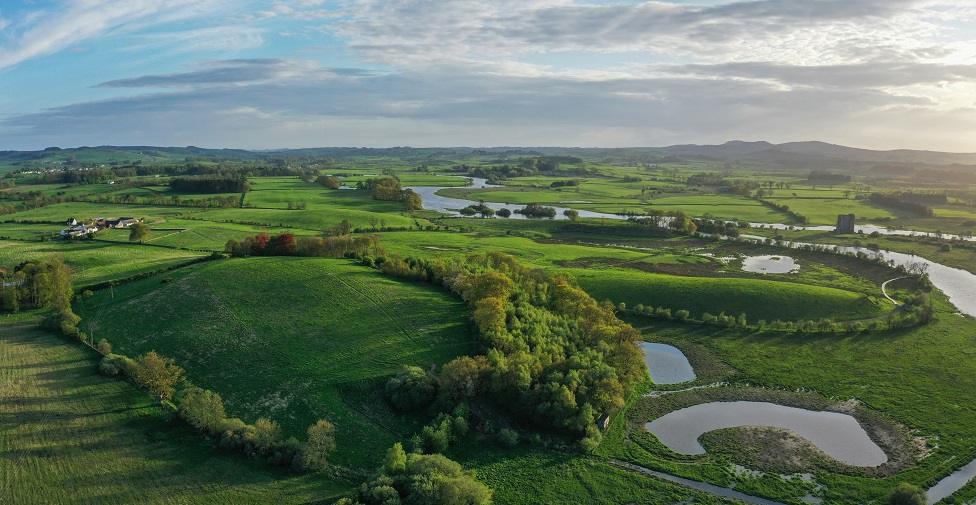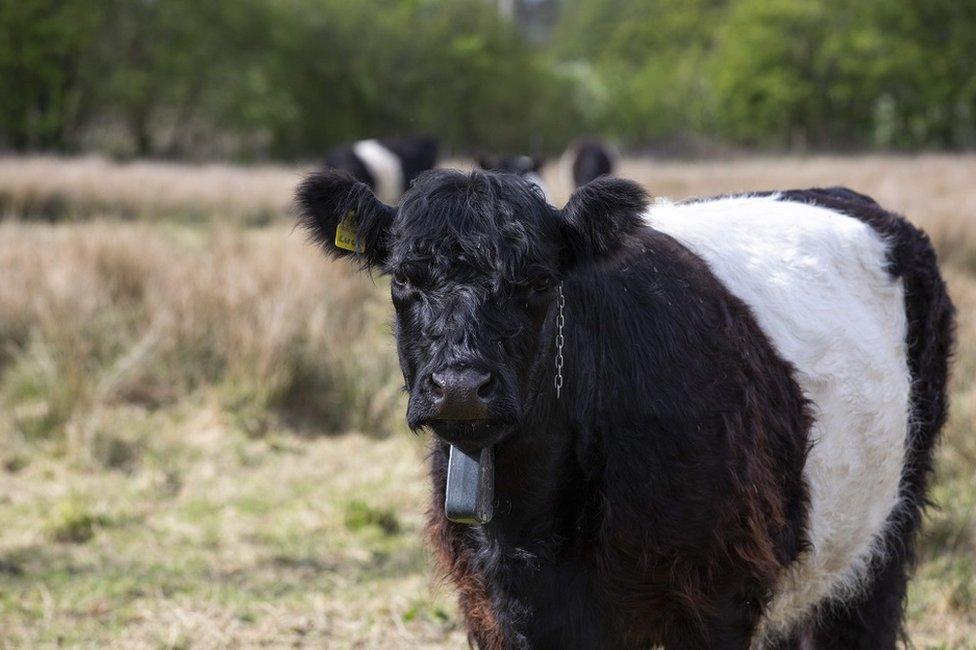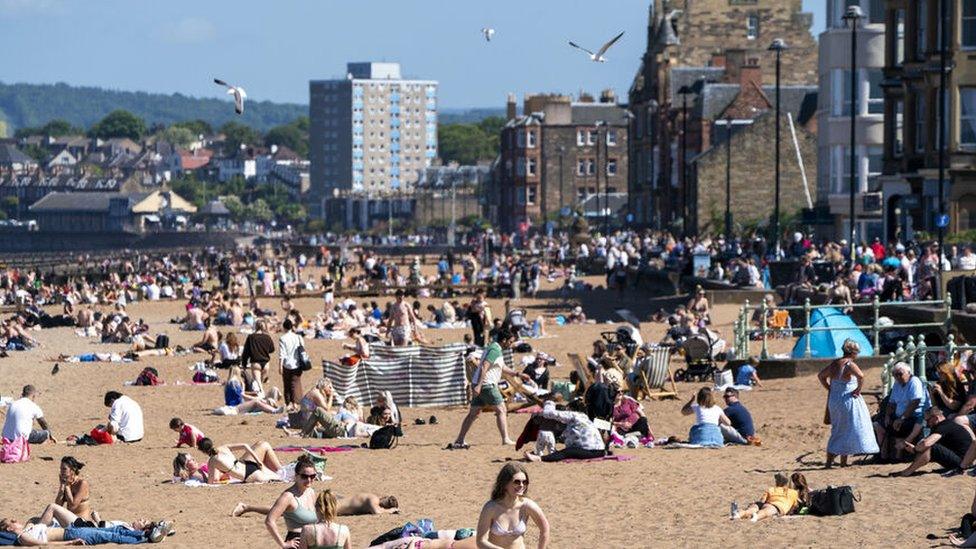Threave Nature Reserve: Working at one of the hottest spots in Scotland
- Published

David Thompson heads up the team which has been working during the heatwave at Threave
In the midst of Scotland's heatwave, Threave hit the headlines as the hottest spot in the country with temperatures topping 30C.
The National Trust for Scotland (NTS) runs the gardens and nature reserve near Castle Douglas.
Head ranger for Dumfries and Galloway David Thompson knows well the impact of climate change on outdoor spaces.
He said the trust had been working differently during the hot weather on its landscape restoration project.

Shady areas can be hard to find on the nature reserve in the south of Scotland
David heads up the team looking after everything from wildflower meadows to rich wetlands and native woodlands.
"An important part of our work at Threave is planning around the weather conditions and what we'll be able to achieve when temperatures rise significantly," he said.
"Safety for the team is always our number one priority - adapting the daily activity plans as and when we need to.
"Over the last few days where the temperatures have been so high, we have limited our grass cutting efforts and instead focused on other tasks which are less labour intensive."

Wildlife on the site has also had to adapt to the conditions
He said the workers had been taking more breaks and finding shady areas to take their breaks which has included putting up parasols to provide more protection from the sun.
"This day last year we were over at Rockcliffe cutting grass paths," he said.
"We've been out twice this week but only for a couple of hours to do any grass cutting that we can that's in the shade - obviously that is really hard work."
He said this meant keeping a close eye on one another to ensure everyone was coping with the heat.
"We're gauging ourselves and doing self-assessments, making sure that we're drinking plenty of fluids and not going out into the direct sunlight," he said.
"It is really difficult to do any physical work so we are managing to do some in the shade but obviously the shady areas aren't going to last forever.
"We are just going to take our time, take regular breaks, put on plenty of suncream, drink plenty of fluids and just look after each other."

Levels of the River Dee have dropped "quite rapidly" since this image was captured
He said that even a welcome breeze could still present its own dangers.
"It can give you a bit of a false sense of security," he said.
"You really need to watch out when there's a breeze but still clear skies and hot sun because that could catch you out.
"You really need to be careful under those circumstances."

A 100-year landscape restoration project is currently ongoing at the reserve
He said there were issues for the area's animals too with some of its pools drying out.
"Thankfully we have got the River Dee close by and quite a lot of the wildlife are taking full advantage of that, however that's dropping in levels quite rapidly," he said.
"The osprey are still able to catch fish.
"I think the other wildlife are doing the same as us really and just picking their moments."
'Inspire others'
The landscape restoration project currently ongoing at Threave is about monitoring changes over a 100-year period and letting nature recover with a "helping hand" from NTS.
David said there was a wider message the scheme hoped to get across which was highlighted by the current heatwave.
"We hope our approach will continue to inspire others to think about how they can make changes that mean nature will flourish," he said.
"This is so important in this time of climate and biodiversity crises, as we are reminded when temperatures rise the way they have done already this summer."
Related topics
- Published13 June 2023
